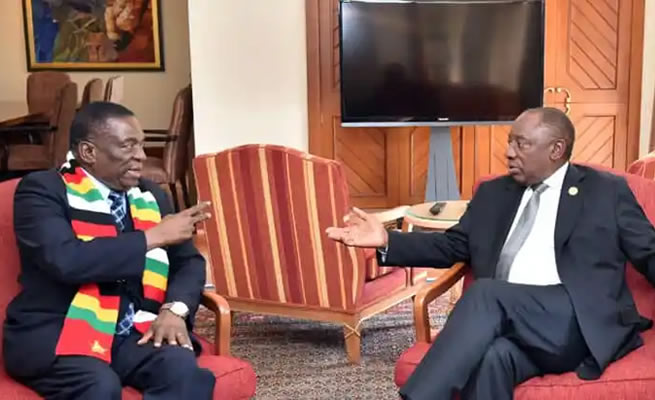In a scathing report, the Council on Foreign Relations (CFR), a prominent United States think-tank, has accused regional leaders of perpetuating impunity and human rights violations by failing to intervene and address the ongoing crisis in Zimbabwe.
The CFR specifically pointed fingers at the Southern African Development Community (Sadc) leaders, stating that they missed a crucial opportunity to intervene when election observer missions flagged the August elections as lacking credibility.
According to the CFR, this failure to act has prolonged the crisis in Zimbabwe, allowing a climate of political violence and human rights abuses to persist. The think-tank expressed disappointment in Sadc leaders, suggesting that they have chosen to ignore the frustrations of African citizens who are increasingly disillusioned by manipulated elections and the facade of democracy used to mask corrupt and authoritarian leadership.
“It’s certainly not because the post-election trend line in Zimbabwe is positive, or because ‘quiet diplomacy’ is bearing any fruit. Political violence still persists,” the CFR report stated, highlighting the ongoing challenges faced by the nation.
Multiple election observer missions had previously raised concerns about various malpractices, including voter intimidation, which significantly undermined the credibility of the polls. Opposition leader Nelson Chamisa has steadfastly refused to accept the election results, labelling the August polls a “gigantic fraud.” Despite these concerns, the ruling Zanu PF party has adamantly defended President Emmerson Mnangagwa’s victory and rejected calls for a re-run.
The CFR emphasized that the failure to address the deep-rooted problems in Zimbabwe has not only resulted in a surge in human rights abuses but has also exacerbated the long-standing socio-economic crisis in the country. “Mnangagwa and his inner circle believe they can act with near total impunity. While Southern African leaders bemoan the way Zimbabwe’s protracted crisis leads to politically explosive migration and dampens investor enthusiasm, they are unable or unwilling to confront the problem,” the report highlighted.
The think-tank drew attention to the dire consequences of such leadership failures, warning that similar lapses in other African regions have led to dangerous instability. By sidestepping the responsibility to address Zimbabwe’s crisis, regional leaders risk plunging the nation further into turmoil.
As the international community watches closely, the spotlight remains on Sadc leaders and their response to the urgent need for action in Zimbabwe. The Council on Foreign Relations has called for a more proactive approach, urging regional leaders to confront the crisis head-on and work towards a resolution that upholds democratic principles, protects human rights, and restores stability in the country.












